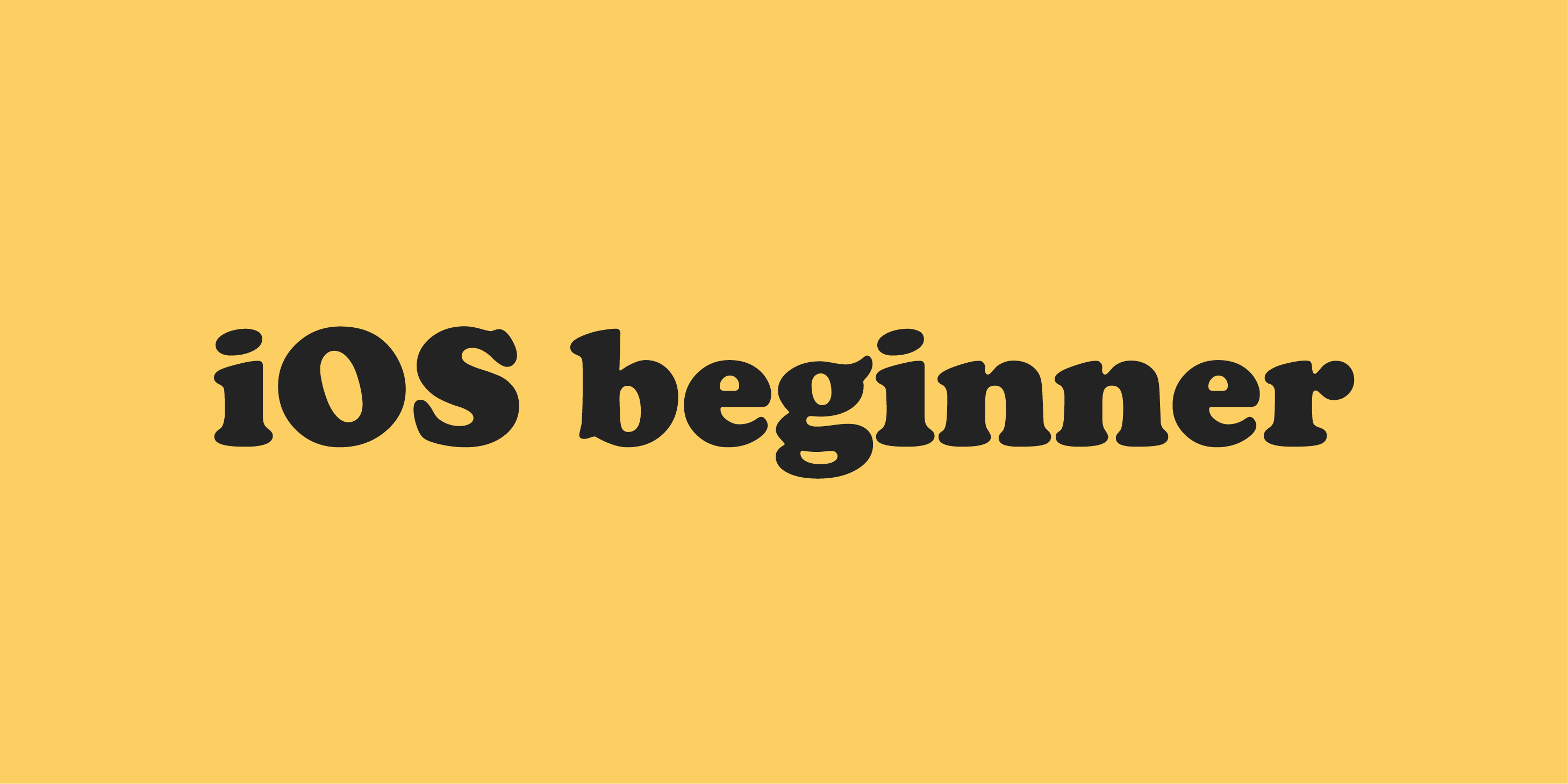
Function

함수 실습 (1)
[ ex 1 ]
func printName(){
print("---> 이름: 린다")
}
// 함수 생성
printName()
// 함수 작동[ ex 2 ] input을 받는 경우
func printMultipleofTen (value: Int) {
print("\(value) * 10 = \(value * 10)")
}
printMultipleofTen(value:5)[ ex 3 ]
func printTotalprice (price: Int, count: Int){
print("Total price: \(price * count) ")
}
printTotalprice(price:1500, count:5)파라미터 이름 변경
func printTotalprice (_ price: Int, _ count: Int){ print("Total price: \(price * count) ") } printTotalprice(1500, 5)func printTotalprice (가격 price: Int, 갯수 count: Int){ print("Total price: \(price * count) ") } printTotalprice(가격: 1500, 갯수: 5)변수 앞에 적힌 부분이 외부에 보이는 모습
함수 실습 (2)
함수에 디폴트 값을 설정할 수 있음
func printTotalpricewithDefault (price: Int = 1500, count: Int){
print("Total price: \(price * count) ")
}
printTotalpricewithDefault(count: 5)
//default 값이 설정된 상태에서 생략한 채 사용한다면 default 값이 적용됨--> 이때 Total price 값을 사용하고 싶으면 값을 반환받아야함
func totalPrice (price: Int, count: Int) -> Int {
let totalPrice = price * count
return totalPrice
}
let price = totalPrice(price: 10000, count: 77)
// ->Int : return 키워드, 무언가를 결과로 반환할 때 사용고급 기능 (1)
✨ 소수점까지 사용할 경우에는 Double 사용
✨ 오버로드: 같은 이름, 다른 행동
func totalPrice(price: Int, count: Int){
print("Total price: \(price * count) ")
}
func totalPrice(price: Double, count: Double){
print("Total price: \(price * count) ")
}
func totalPrice(가격: Int, 갯수: Int){
print("Total price: \(가격 * 갯수) ")
}✨In-out parameter : 받은 값을 바꾸고 싶을 때
func incrementAndPrint(_ value: Int){
value += 1 //constant를 바꾸려고해서 오류남
print(value)
}-> 변수 앞에 inout을 작성해주고 함수를 작동시킬 때도 변수 앞에 &을 붙여줘야 작동
var value = 3
func incrementandPrint(_ value: inout Int){
value += 1
print(value)
}
incrementandPrint(&value)고급 기능 (2)
✨ 함수를 인자로 사용하는 법
func add(_ a: Int, _ b: Int) -> Int {
return a+b
}
func subtract(_ a: Int, _ b: Int) -> Int {
return a-b
}
var function = add //함수 자체를 변수에 할당할 수 있음
function(4,2)
function = subtract
function(4,2)func add(_ a: Int, _ b: Int) -> Int {
return a+b
}
func subtract(_ a: Int, _ b: Int) -> Int {
return a-b
}
func printResult(_ function: (Int, Int) -> Int, _ a: Int, _ b: Int) {
let result = function(a,b)
print(result)
}
// a,b를 function에 넘기면 그 result를 프린트해주는 함수
printResult(add, 10, 5)
printResult(subtract, 10,5)Optional
optional 기초
var name: String = "Joon"
var dogName: String = "Mozzi"
var carName: String = ???optional: 어떤 값을 갖고 있지 않은 경우 / 갖고 있는 경우 모두 표현할 수 있게 해줌
- 없다는 표시: nil
optional 기초 실습
var carName: String?
carName = nil //이름이 없는 상태 표현
carName = "땡크" //데이터를 할당let num = Int("10") //성공
let num = Int("10하이") //실패optional 고급 (1)
optional의 고급 기능 4가지
1) Forced unwrapping : 억지로 박스를 까보자
2) Optional binding 1 (if let) : 부드럽게 박스를 까보자
3) Optional binding 2 (guard) : 부드럽게 박스를 까보자 2
4) Nil coalescing : 박스를 까봤더니 값이 없으면 디폴트 값을 줘보자
1. Forced unwrapping
var carName: String?
carName = "땡크"
print(carName) //Optional("땡크")
print(carName!) //박스를 까서 value만 가져오는 행위: 땡크
carName = nil
print(carName!) //오류남2. Optional binding "if let"
if let unwrappedCarName = carName {
print(unwrappedCarName)
} else{
print("carName 없다")
}
//변수에 값이 할당돼있는 경우에는 값을 프린트, nil인 경우에는 다른 값 프린트하도록 설정func printParsedInt(from: String){
if let parsedInt = Int(from) {
print(parsedInt)
} else {
print("Int로 변환안됨")
}
}
printParsedInt(from: "100") //100
printParsedInt(from: "헬로우") //Int로 변환안됨3. Optional binding "guard"
func printParsedInt(from: String){
guard let parsedInt = Int(from) else{ //이 구문 통과하면 빠져나가서 print(parsedInt)로. 만약 통과하지 못하면 괄호 안 내용 수행하고 함수 빠져나감
print("Int로 변환안됨")
return
}
print(parsedInt)
}4.Nil coalescing
let myCarName: String = carName ?? "모델S"
//carName이 nil 일 경우, 뒤에 있는 "모델S"를 default로 넣어줘